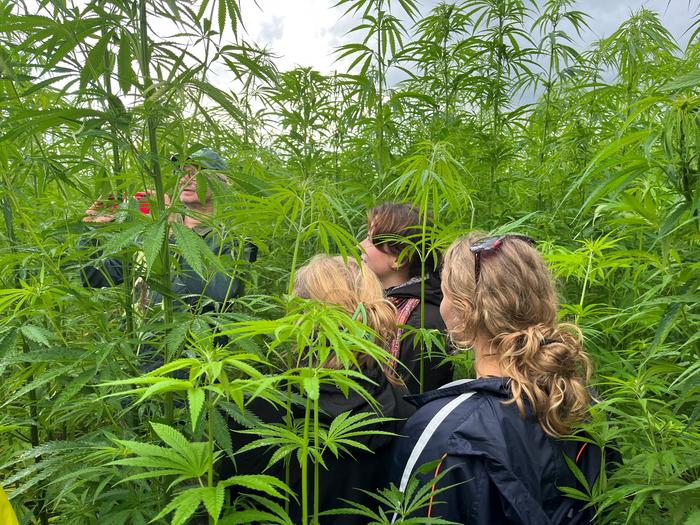In the quest to reach the ambitious target of cultivating 25% organic farmland across Europe by 2030, a profound debate has emerged concerning the role of cutting-edge biotechnologies in agriculture. Central to this discussion are new genomic techniques (NGTs), sophisticated gene editing methods that offer precise modifications to plant genomes. Advocates argue that integrating NGTs into both conventional and organic farming systems promises to revolutionize crop development by accelerating the creation of varieties that are resilient to climate stressors, deliver higher yields, and reduce dependency on synthetic fertilizers and pesticides.
NGTs, often classified within the broader category of genetically modified organisms (GMOs), represent a nuanced advancement over traditional genetic modification. Unlike earlier GMO approaches, which frequently involved inserting foreign DNA from non-plant species, many NGT processes focus on subtle genetic changes that mimic natural mutations or crossbreeding events but achieve results in a fraction of the time. This distinction has sparked debate on how these technologies should be regulated, particularly within the European Union where organic farming standards have remained stringent and traditionally excluded GMOs.
Currently accounting for about 10% of agricultural land in the EU, organic farming is lauded for its environmental benefits, including reduced carbon emissions and minimized chemical inputs. However, researchers caution that the anticipated scale-up to 25% organic acreage could paradoxically threaten biodiversity. Organic farming’s lower productivity per hectare means that expanding organic acreage could require further conversion of natural and semi-natural habitats to farmland, undermining conservation goals. The integration of NGTs could help bridge this yield gap while maintaining organic principles, thereby offering a pragmatic path toward sustainable intensification.
Regulatory frameworks in Europe are at a crossroads. The legislation governing GMOs was enacted in 2001, predating the development of gene editing technologies. The European Commission’s recent proposals contemplate permitting the usage of NGTs exclusively in conventional agriculture, excluding organic farming from their scope. This proposed dichotomy has drawn criticism from scientists who highlight the technical and ethical inconsistencies this separation entails. Identification and traceability of NGT-derived plants present formidable challenges, as many edits are indistinguishable from mutations acquired through natural or conventional breeding means.
Consumer perception is a pivotal factor influencing regulatory decisions. Surveys and studies indicate that many European consumers conflate NGTs with traditional GMOs, leading to uncertainty and hesitancy. However, there is evidence suggesting that acceptance increases when consumers are informed about the science behind NGTs and their potential environmental and health benefits. For instance, gene editing that enhances drought tolerance or nutrient use efficiency could directly address pressing climate challenges and food security concerns, which resonate with environmentally conscious consumers.
One of the most widespread types of NGT is targeted mutagenesis. This technology induces precise, targeted mutations without introducing foreign genetic material, closely resembling changes achieved by conventional mutagenesis techniques. Notably, mutagenesis induced by chemical or radiation methods has never been regulated as GMO in the EU, even within organic farming standards. This historical regulatory precedent adds weight to calls for reevaluating the classification and governance of NGTs in organic agriculture, fostering consistency and scientific rigor.
Introducing a regulatory framework that differentiates NGTs from classical GMOs is essential to unlocking their potential benefits. Such a framework would recognize the unique characteristics of gene editing, as well as its potential to contribute significantly to sustainable agriculture. By enabling their responsible inclusion in organic farming, Europe could position itself as a leader in environmentally conscious innovation, harmonizing the goals of climate resilience, biodiversity conservation, and food sovereignty.
The complexity of ensuring product traceability and labeling in a system that segregates organic and conventional agriculture with respect to NGTs cannot be overstated. Given the technical impossibility of reliably detecting NGT edits in finished food products, enforcing such a split risks undermining trust and compliance. A more pragmatic approach advocates for allowing NGT usage in organic production, coupled with enhanced transparency measures, participatory decision-making, and responsive regulatory oversight.
Crucially, the deployment of NGTs in organic farming should not be exclusively dictated by policymakers or scientists but should engage organic producers and consumers through inclusive forums such as citizens’ juries and food councils. These platforms can provide democratic, science-informed deliberations that reflect societal values and expectations, facilitating an adaptive regulatory environment aligned with public interests and sustainability objectives.
As Europe confronts the twin challenges of feeding a growing population and preserving its natural heritage, NGTs offer an unprecedented technological tool to catalyze agricultural transformation. The scientific community urges a shift away from blanket prohibitions toward nuanced, evidence-based policies that acknowledge the potential of gene editing to foster resilient, efficient, and environmentally sound food systems. Embracing NGTs within organic agriculture may signify a watershed moment—a modernization that honors tradition while navigating the frontiers of science.
Ultimately, the successful integration of new genomic technologies in organic farming hinges on transparent communication, robust scientific evaluation, and collaborative governance. Aligning these elements could unlock a future where organic agriculture thrives not in opposition to innovation, but in synergy with it, delivering on the promise of sustainability at scale within the European Green Deal framework.
Subject of Research: Not applicable
Article Title: New genomic techniques in organic production: Considerations for science-based, effective, and acceptable EU regulation
News Publication Date: 30-May-2025
References: Molitorisová et al., Cell Reports Sustainability
Image Credits: Justus Wesseler
Keywords: Genetically modified crops, Crop science, Agricultural engineering, Crop production, Agriculture, Sustainable agriculture, Farming




